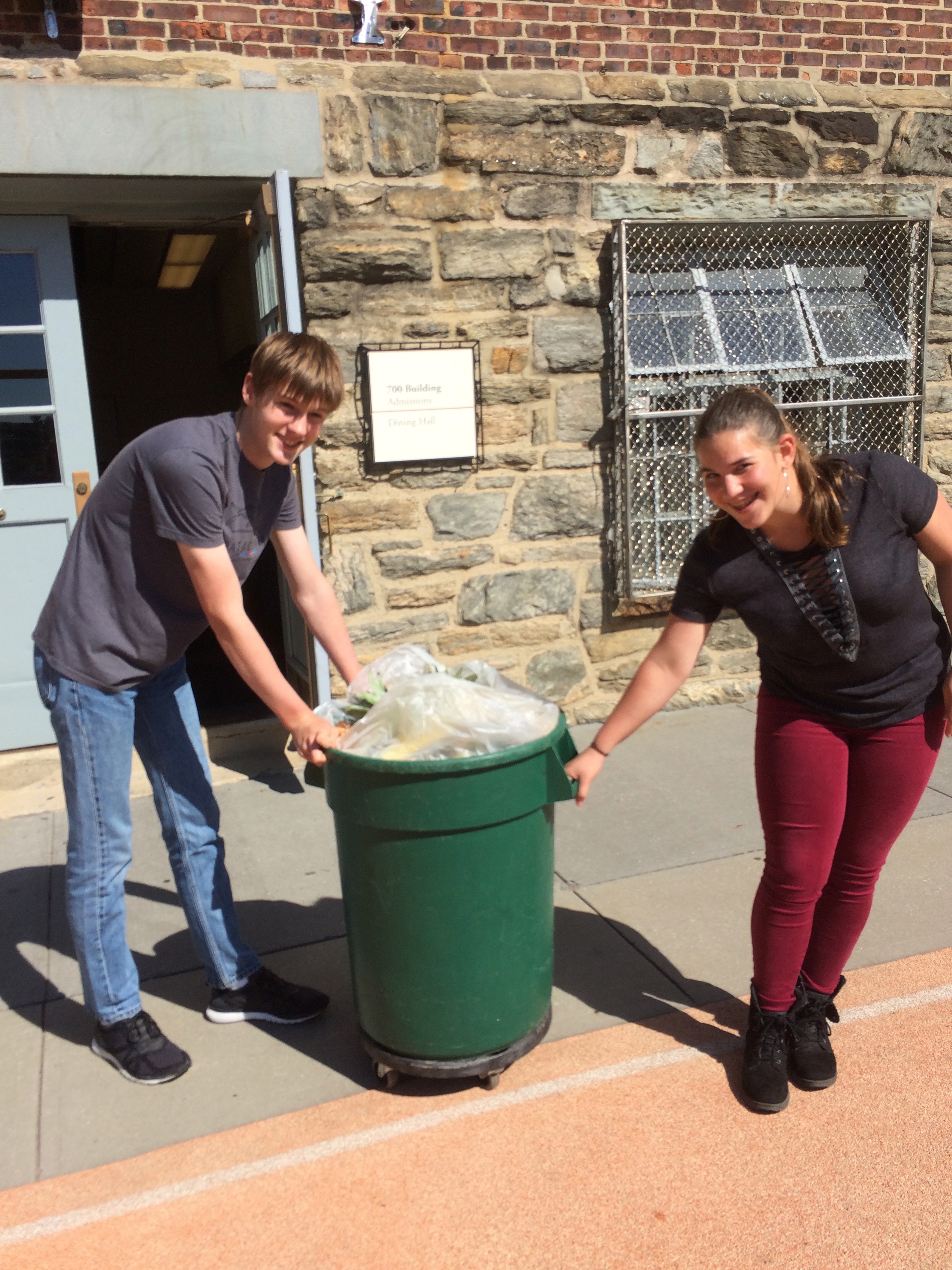Sustainability is an important but often unnoticed aspect of how Fieldston operates. It is not often that students stop and think about where uneaten food ends up at the end of the day or which trash a cup from the nurses office should be thrown into. Fieldston’s Environmental Club works hard to educate the community on what individuals can do to better the environment and make Fieldston a more sustainable place.
Some initiatives the group has taken up over the past year that continue today are composting and making sure that all utensils and dishes used on campus are reusable in order to decrease waste.
“Flik collects pre consumer compost scraps for us in a bin in the kitchen, which we empty out every day and environmental club volunteers bring the bin from the kitchen to the edge of the lower field, where the composting bins are located” said Emily Power (VI), Secretary of Sustainability and an Environmental Club member.
In order to keep the composting program up and running Environmental Club members meet regularly with members of the Flik staff working in the dining room.
“We have made a really strong connection with the kitchen staff, and we meet with them and the directors of campus operations as much as we can,” Hank Marriott (V), Environmental Club member, said. “They have been amazing in working with us in composting, and their consistency is remarkable.”
One setback in efforts to reduce the use of non-reusable dishware on campus has been the plastic cups and covers in the cafeteria that are available to students for coffee, tea and other hot beverages throughout the day. The Environmental Club members are working diligently to find a solution for the large numbers of these cups used and disposed of daily.
In addition to reducing the amount of non-reusable items in the cafeteria, student athletes are being urged to bring their own reusable water bottles for games, practices and gym sessions or use water fountains on breaks. The amount of paper and plastic cups used in one sports practice by a team is extreme, because each player generally uses multiple cups, and the used cups often end up littering the fields or the track, making it nearly impossible for them to be recycled.
Recycling is an easy way for students and faculty to participate in reducing waste at Fieldston, but many community members either don’t pay attention to where they throw out their plastic waste or they are unsure of what can and can’t be recycled. In order the combat this issue, the Environmental Club has presented videos on how to recycle during assemblies in past years. The club is currently putting together another “Recycle or Nah” video to share with the community.
“Students and faculty must pay attention during our recycling videos because items are constantly being put in the wrong bins,” Power said.
Recycling is one of the most effective ways community members can help promote sustainable practices, and yet it’s something that few people pay attention to.
“The thing I consider most achievable at Fieldston is for teachers and students to assist one another if they see somebody putting something in the wrong bin,” Marriott said.
Another project that the Environmental Club has continued working on this year is planting milkweed in the Middle School roof garden. This initiative is meant to help sustain the monarch butterfly population in the area.
Other ways that students and faculty can easily help reduce waste at Fieldston are turning off lights before leaving rooms, using hand dryers instead of paper towels and making sure that sink taps are all the way off to prevent unnecessary water waste. It is important that all members of the community are making these efforts because together, the community can make a real impact on waste reduction.






